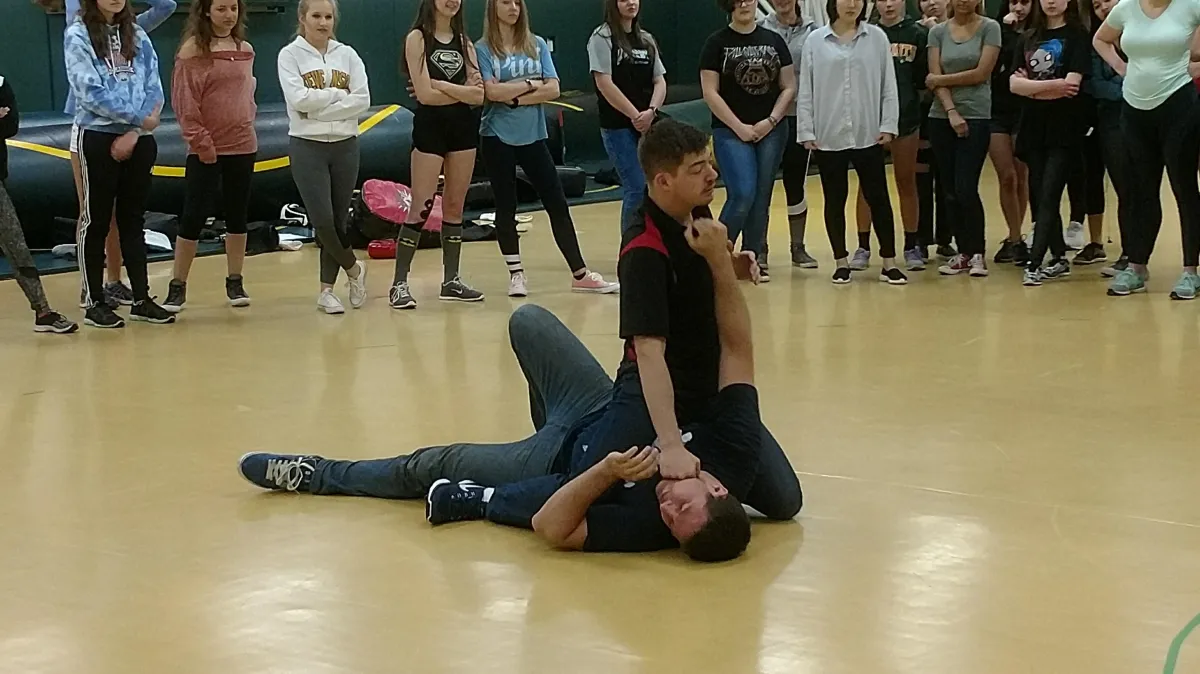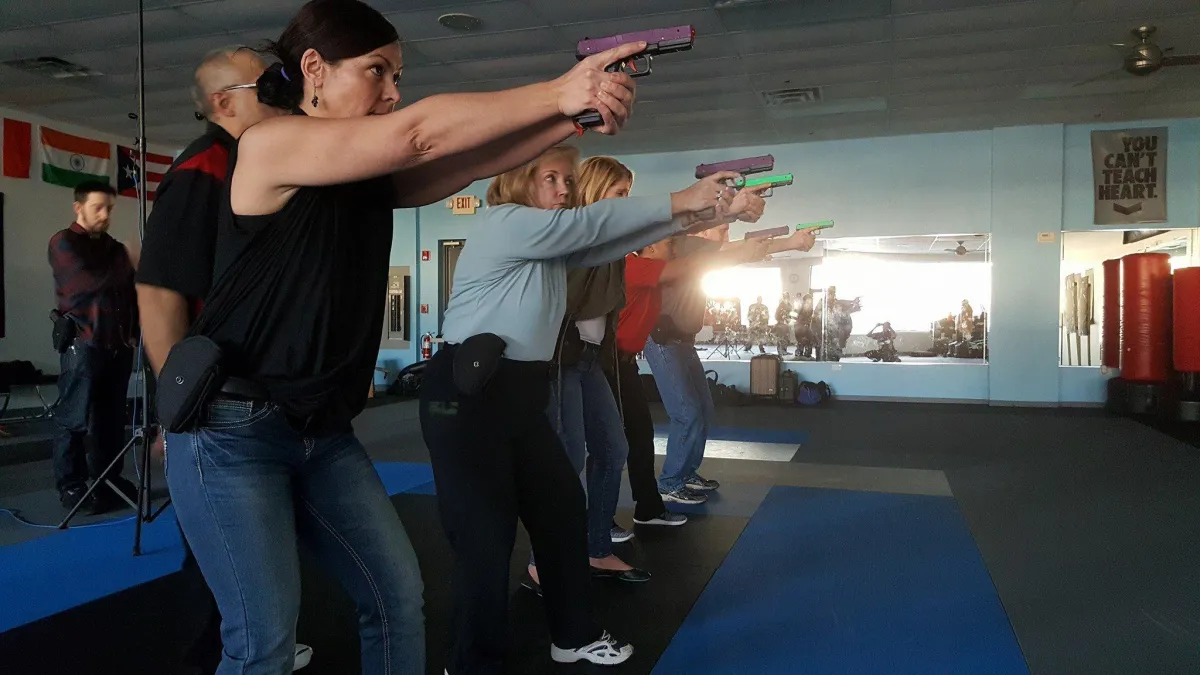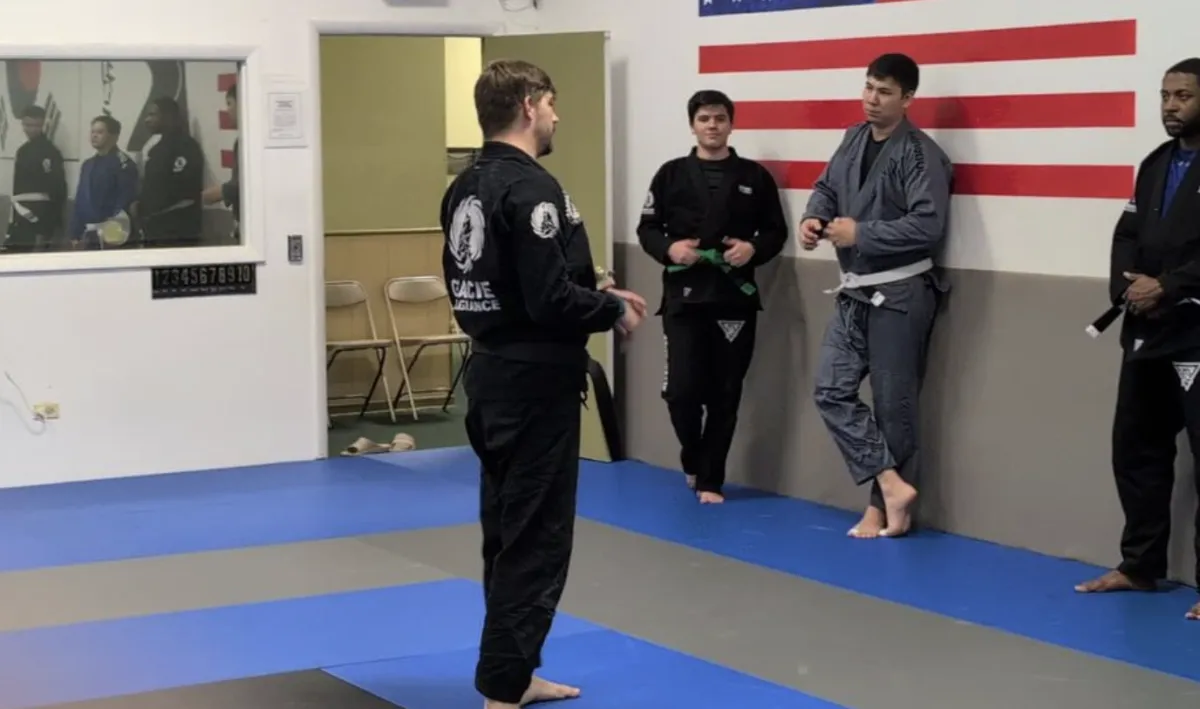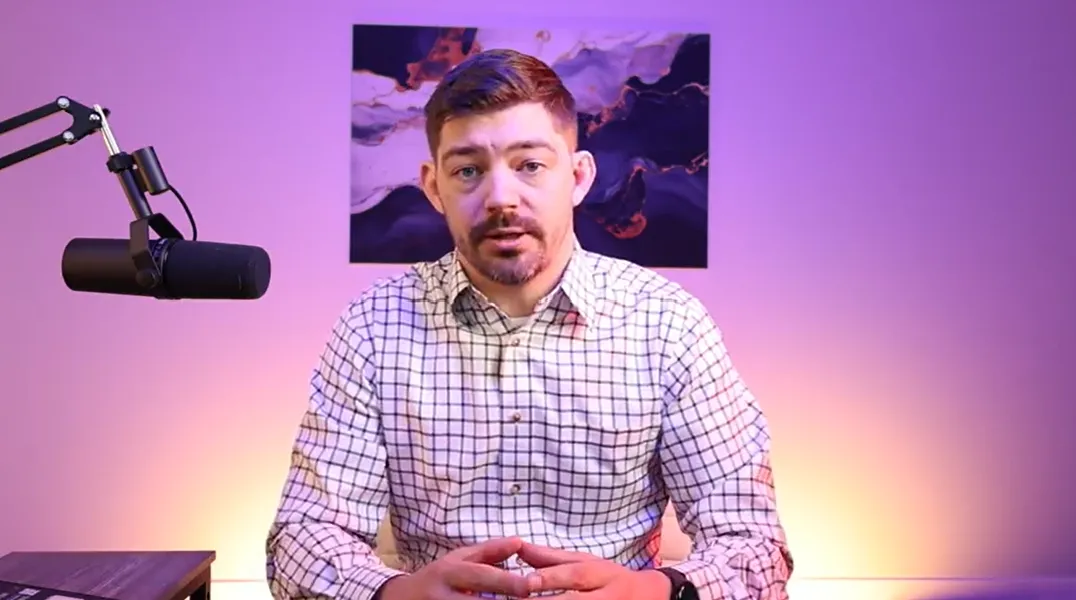EARLY BIRD SALE (50% off!): Use Code EB50 at Checkout
Confidently Train to Avoid Jail Time and Lawsuits:
Understand Self Defense Law
(Without Being a Lawyer...)
You train to spot physical threats before they happen, but most people miss the blind spot that could cost their freedom.
Self-Defense Law for Martial Arts (SD4MA) gives the legal awareness that completes your training..
EARLY BIRD SALE!
Join now to get 50% off, early access, a private group where you get your questions answered directly, and more! Lifetime access to the civilian course is just $99 $48
Offer Expires Soon.

"Chris is an amazing instructor. We spent half the class going over legalities surrounding self defense, then the other half involved the physical aspect. I've never been introduced to self defense law before!"
Vicki P.

"I've been training martial arts for many years, but never really thought about the law until a conversation with Chris. Eye opening, and his passion about self defense law is incredible."
Brandon R.

"The amount of bad information out there is scary. Chris said the exact phrases I've heard before and then showed how acting on those could get me in trouble. I'm very glad I cleared things up with this course!!"
Jackie C.
Let's Face It...
Learning self defense is more than physical training. The legal side is just as important.
❌
But the law is unclear...
We're required to follow the law, but the directions are hard to understand.
❌
We're often taught the wrong things.
We're taught by quick phrases or quips that can open us up to liability.
❌
No one seems to cover the law.
Most self-defense programs ignore the law entirely—leaving a critical gap in your training.
Introducing
Self Defense Law for Martial Arts
✅
Get Legal Clarity
Navigate the vague phrases of self defense statutes to understand your rights clearly.
✅
Train with Confidence
Don't hesitate OR overstep when it matters most by following self defense law frameworks.
✅
Truly Protect Yourself
Learn how context is everything in self defense so you reduce your risk to physical, legal, and financial harm.
Plus So Much More!
Scroll down to see everything you get lifetime access to...
What We'll Cover:
Complex Law Made Easy
Get to the CORE of SD Law:
You’ll finally understand what the law looks for in a self-defense case—so you can make fast, confident decisions in high-stress moments.The 4 Pillars of Self Defense Law:
Designed for non-lawyers, this framework breaks down how self-defense laws are interpreted in court—not just how they’re written on paper.

Is It Self Defense... or Assault?
Practice Analyzing Guided Examples:
You’ll train your judgment, not just your technique—so you can recognize the difference between what feels like self-defense and what the law actually allows.'What Would You Do' Rehearsal:
Walk through real-life cases and common “what if” scenarios, showing you where things go right... and where people get it horribly wrong.

Learn How Self Defense Law Applies to YOU
Compare the Laws of Different States:
Learn how critical it is to distinguish how the law changes state by state, and how inconsistent the law can truly be.
Understand: Duty to retreat, castle doctrine, escalation, bodily harm, imminence, etc., all as they apply to the context of self defense.

Meet Your Instructor

My name is Chris Flodstrom, and I’ve been teaching martial arts and self-defense for over 20 years, but I didn't always teach the way I teach it now!
I started out just like most instructors: passionate, confident, and committed to helping people protect themselves. But like almost everyone in this space, I was never taught what the law actually says about self-defense. I didn’t know what would happen after the fight if it ever went to court. I thought what I was teaching was enough, not really realizing the potential risks I was opening my students up to.
Since then, I’ve dedicated myself to studying self-defense law, not as a lawyer, but as a teacher, an instructor, and a student of what really happens when martial arts meets the legal system. I’ve read case after case, interviewed LEOs and lawyers that have actually tried self defense cases, broken down what prosecutors look for, and built a practical, plain-language framework for helping everyday people understand the spectrum of what could even be considered to be legally justified... and what’s not.
And guess what the #1 thing I learned through that process is...? 👉 There is a SCARY amount of bad information out there. And if you get it wrong—even by accident—you could end up facing criminal charges for trying to protect yourself or your family. You don’t need to be a lawyer. But you do need to understand what the law looks for, how judgment works under stress, and what courts actually care about.
That’s what inspired me to build this course. It’s the kind of training I wish someone had given me years ago and now I get to share it with you.
But look, you don’t really care about my story.
What matters is this:
Can I actually help you?
Can this course help you avoid legal mistakes, protect the people you love, and make smart decisions under stress?
That’s the promise here. And based on the feedback I’ve gotten from martial arts instructors, parents, and everyday people across the country… this approach works. When you follow a clear framework for understanding self-defense law, you lower the risk of making a very costly mistake.
I’m in the private group every week, answering questions, helping break down scenarios, and staying sharp right alongside you. Can’t wait to see you inside!
Who Is This Course For?
People that recognize the value and importance of good preparation.
True students of the study of self defense.
Individuals that are fully committed to doing the right thing.
What Categories Do We Focus On?
Legal Clarity – Understand what the law actually says about self-defense.
Real-World Application – Learn how to recognize and respond to real threats legally.
Myth-Busting – Separate fact from fiction in self-defense advice and training.
Decision-Making Under Stress – Build the judgment to act confidently and correctly.
Teaching and Communication – Know how to talk about self-defense law without overstepping.
Who Is This Course NOT For?
People looking for legal loopholes or tricks —this course is about responsible, justified self-defense, not gaming the system or seeing what you can get away with.
Those unwilling to question what they’ve been taught —if you’re not open to rethinking your approach, this won’t be a good fit.
Anyone expecting personal legal advice —this is an educational course, not a substitute for a lawyer.
Those who believe good intentions alone will protect them —we focus on what the law actually requires, not just what feels fair.
Frequently Asked Questions
How can you give legal advice if you aren't a lawyer?
I can’t, and I don’t.
This course is not legal counsel. I’m not a lawyer, and I don’t pretend to be one. What I
am doing is presenting publicly available legal information in a way that’s easier to understand and apply in real-world situations.
Think of it like a driving instructor: they teach the rules of the road (which are traffic laws), even though they’re not lawyers. They’re showing you how to follow those rules safely and confidently.
That’s exactly what this course does for self-defense law—except it’s a little trickier, because there’s more room for interpretation.
That’s why I clearly explain throughout the course that this is for educational and informational purposes only. It’s designed to help you build awareness, ask better questions, and act more responsibly—not to replace a lawyer if you ever need one.
We all have a legal right to self-defense. And we don’t have to be lawyers to understand how that right works, when it applies, and how to act within it.
How long will it take to fully understand this material?
To be honest, it’s a continuous process—kind of like training in martial arts. You can absolutely reach a level where you’re confident and capable, but there’s always more to learn, more nuance to explore, and more judgment to refine.
Self-defense law doesn’t deal in absolutes.
What matters isn’t just what happened, but how it could be viewed by others.
This course helps you start thinking that way: not just “is this legal?” but “how would this be seen in court?”
By the end of the course, you’ll have a clear, structured understanding that’s more than good enough to recognize key legal principles, avoid common mistakes, and prepare yourself (or your students) to act with clarity and confidence under pressure.
And like any good training, you’ll keep getting better the more you revisit it.
"Can't I learn all of this by looking it up myself?"
100%!
You can and you absolutely should if you have the time, focus, and understanding to piece it all together. In fact, the biggest fans of this course go on to do a TON on independent research on SD Law.
But here’s the truth: self-defense law is inconsistent, complex, and full of gray areas that take a lot of effort to sort through.
What this course does is save you dozens (or even hundreds) of hours trying to read statutes, analyze case law, and make sense of legal commentary.
I’ve already done that work—and I’ve packaged it into a clear framework that’s made for everyday people, not lawyers.
It’s like building your own curriculum vs. taking a class that’s already structured, tested, and focused on what really matters.
You could do it alone—but this course helps you get the knowledge faster, with far less frustration, and with far more confidence that you're learning what actually applies in real life.
"Do I need to have any experience before starting?"
Nope—no legal background or martial arts experience required.
This course is designed for everyday people who want to understand when self-defense is legally justified. Whether you’re a martial artist, a parent, a coach, or just someone who carries pepper spray “just in case,” you’ll benefit from learning how the law actually works.
Everything is broken down in plain language with real-world examples—no legal jargon, no fighting experience needed.

Is there a guarantee?
Absolutely! We have a 7-Day Satisfaction Guarantee. If you are not completely SATISFIED and ENLIGHTENED by our program, then contact us within 7 Days for a full refund, no questions asked!

© 2025
By visiting this page, you agree to terms and conditions, privacy policy & earnings disclaimer.
This site is not a part of the Facebook website or Facebook Inc. Additionally, This site is NOT endorsed by Facebook in any way. FACEBOOK is a trademark of FACEBOOK, Inc.
DISCLAIMER:
The information provided in this course, Self Defense Law for Martial Arts, is for educational and informational purposes only and does not constitute legal advice. I am not an attorney, and this course is not a substitute for consulting with a qualified legal professional.
While the material is based on publicly available laws, case studies, and legal interpretations, self-defense law varies by jurisdiction and is subject to change. The examples and scenarios presented are illustrative only and are not guarantees of any legal outcome.
Your decisions, actions, and legal responsibilities remain your own.
This course is designed to help you better understand general legal concepts related to self-defense, not to guide your actions in a specific incident or replace professional legal counsel.
If you are facing a legal matter or need legal advice, please consult an attorney licensed in your state.